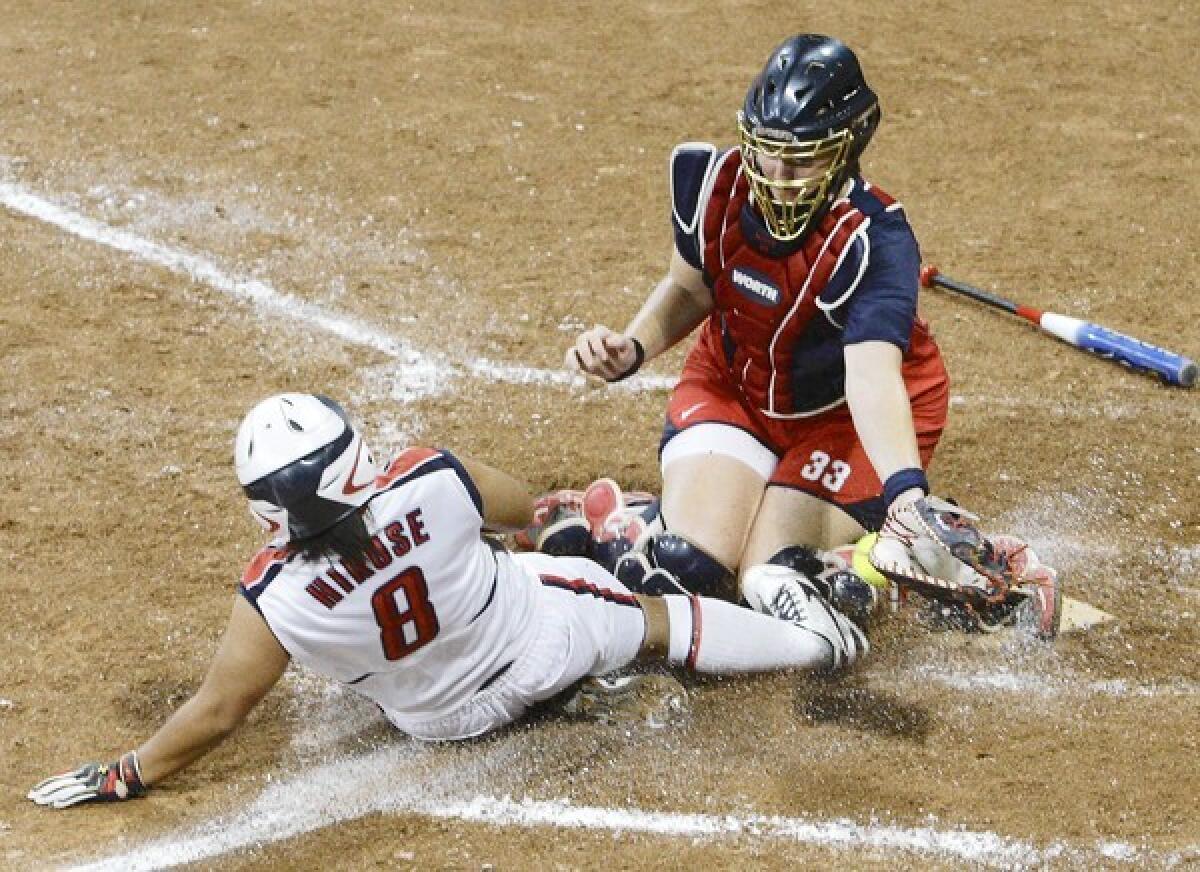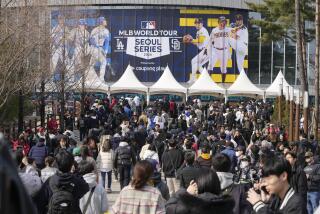Baseball and softball belong in the Olympics

Beijing 2008 saw one of the most incredible sporting feats the Olympics has ever known. On Aug. 20, Japanese softball pitcher Yukiko Ueno hurled eight scoreless innings before
Japan fell to an indomitable U.S. squad in the bottom of the 9th. Two hours later, she pitched 12 more innings against Australia, sending Japan to the gold medal match against the U.S. The next day, she came back with seven more sterling innings as Japan defeated the three-time Olympic softball champs, 3-1. Fans and news media alike stood mesmerized by Uenoâs performance. I was one of them.
But Beijing 2008 proved to be softballâs Olympic swan song, just as it was becoming an Olympic staple. Olympic decisions are made seven years in advance, and in 2005, spurred by a vigorous European campaign, softball and baseball were voted off the London 2012 Olympic program. Now a window opens for their return to the Olympic program.
On Sept. 8, the 100 members of the International Olympic Committee will vote to make one of three sports â baseball/softball, wrestling or squash â the 26th âcoreâ sport in the 2020 Games. The IOC decision will have a major impact on what sports the next generation of children will play and on how the sports equipment industry is configured. The U.S. spends billions each year trying to burnish our image abroad. If the IOC chooses baseball and softball, two vintage American sports, we will get a boost for free.
Wrestling, which dates back to the original Greek games, was dropped by the IOC in February. Then the International Wrestling Federation updated its scoring system, added two competition classes to womenâs Olympic wrestling and asked for reinstatement in May, appealing not least to âtradition.â
As for squash, its pitch points are new high-tech graphics and the fact that it doesnât require a purpose-built venue.
But can wrestling go from antiquated to vital in three months? And is squash really more ârelevantâ â an IOC watchword â than baseball and softball?
The marriage of baseball and softball as separate disciplines within the same category came at the suggestion of Thomas Bach, one of the candidates to replace Jacques Rogge as the next president of the IOC. Baseball and softball will share the same field, saving tens of millions of dollars. The Asian Games, the second-largest international sporting festival, has used this formula effectively.
The weak link in baseball/softballâs reinstatement bid is getting baseballâs superstars to compete. Rogge has made it clear that baseball will only be allowed back in the Olympics if the worldâs best in both disciplines are on the field. This would probably require stretching Major League Baseballâs All-Star break. The MLB Players Assn. is working with the newly minted World Baseball Softball Confederation, which has 130 member nations, to find a way. Pro ball, with its solid fan, financial and media bases, doesnât need the Olympics, but it doesnât want to be seen as anti-Games.
As for softball, without the Olympics, it cannot flourish. It is banking on its millions of players and the gender parity it provides to bring both sports back into the Olympics.
âWe are probably the largest sport thatâs not on the current Olympic program in terms of numbers,â said International Softball Federation President Don Porter, referring to baseball/softballâs 65 million participants worldwide, with 35 million softball players. âWe are hoping the IOC will find a place for baseball and softball at the Olympic Games in 2020, and in doing so, send a message to girls and young women everywhere that the Olympic Games are for them.â
Perhaps tipping his hand, IOC executive board member Ching-Kuo Wu, another IOC presidential hopeful, called menâs Olympic baseball and womenâs Olympic softball âan appealing balance.â
And there is this wild card in the decision-making. The day before the core vote, the IOC will choose the host for the 2020 Games: Tokyo (in the midst of an economic renaissance), Madrid (economically unstable) or Istanbul (on the edge of Middle East bedlam). Tokyo is the odds-on favorite. Japan is mad about baseball and softball. And baseball/softball, played in the 55,000-capacity Tokyo Dome, has the capacity to draw 1 million more spectators to the Olympics than can fit into the proposed 10,000-seat wrestling venue. This is a crucial part of baseball/softballâs pitch to IOC voters.
For the softball world, the Sept. 8 vote will have career implications. Jessica Mendoza, a member of the silver medal U.S. team in Beijing, told me of scores of top-of-the-line players who have left the game prematurely because, without the Olympics, their training stipends evaporated. âFor softball players,â Mendoza said, ânothing can match the Olympics. It is the pinnacle of our sport. Reinstatement in the Olympics will validate softball as a global sport.â
In China, a softball powerhouse, national coach Liu Yaming tells me that softballâs Olympic reinstatement will pump $500,000 of government money into the game immediately and inject purpose into the national softball training program. In Japan, according to national coach Reika Utsuki, softballâs reinstatement will bring back its sponsor base, which dwindled by 30% when softball was dropped from the Games.
Superstar Ueno, the face of international softball, puts it succinctly: âThe Olympics will energize the entire next softball generation. Not only the players but also fans, families, friends, the young and the old, men and women. The Olympics have such magical power.â
Jonathan Kolatch has written about the Olympics for the Wall Street Journal and in his book, âChina Mosaic.â
More to Read
A cure for the common opinion
Get thought-provoking perspectives with our weekly newsletter.
You may occasionally receive promotional content from the Los Angeles Times.










